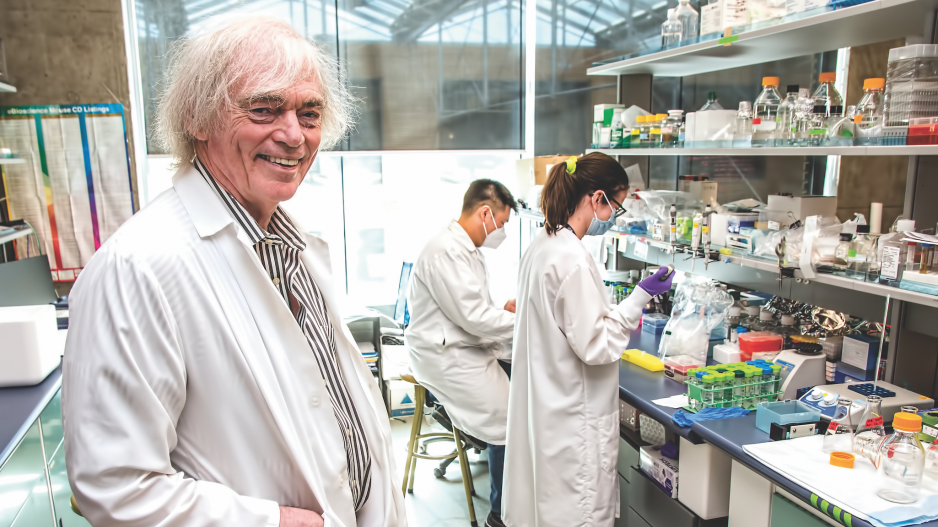The Nobel Prize organization this weekend announced its 2023 winners in the physiology and medicine category: Katalin Kariko and Drew Weissman.
For many people in the life sciences community, the surprise was not that Kariko and Weissman won the big prize. The surprise was that their partner, Vancouver's Pieter Cullis, was not also named as a winner.
BIV last year speculated that Kariko, Weissman and Cullis would be in the running for a Nobel Prize.
Kariko, Weissman and Cullis provided essential work helping Pfizer and BioNTech create a COVID-19 vaccine that was injected into more than one billion people, perhaps saving millions of lives.
Together that trio has won many international awards.
Kariko and Weissman’s expertise was in engineering messenger RNA (mRNA) to be the active ingredient in the vaccine, while Cullis' role was creating the system for getting the vaccine's active ingredient into human cells.
"I'm assuming that the committee thought that the delivery system had been around for a long time and, unfortunately, I expect that they didn't fully understand that the delivery system is actually very new, and is required, and is the only type of delivery system that can get the mRNA into a cell," said Mick Hope, who has known Cullis since the 1970s and has helped found multiple companies with Cullis.
The oversight may have happened because the process for being awarded a Nobel Prize is that people must be nominated by eligible nominators. Whoever nominated Kariko and Weissman may have been the one who did not fully realize the necessary contribution that Cullis provided for the vaccine.
The Nobel Prize win comes with approximately US$1 million.
Germany-based Kariko, U.S.-based Weissman and Cullis had previously won Thailand's Prince Mahidol Award for medicine – a prize that came with a US$100,000 cheque to the trio. The three also pocketed US$3 million as part of winning Vietnam's VinFuture Grand Prize. They also won Canada's Gairdner Foundation fellowships, worth $100,000, and Taiwan's Tang Prize – an honour that came with a cheque for US$1.7 million, and a $350,000 grant for future research.
Some longtime entrepreneurs and investors in B.C.'s life sciences community believe Cullis will eventually get the Nobel Prize recognition that they believe he deserves.
"It's not a matter of if it's a matter of when [he will win the Nobel Prize,]" said Ali Tehrani, who founded Zymeworks and is now a partner at Amplitude Ventures.
Cullis was not immediately available for an interview.



